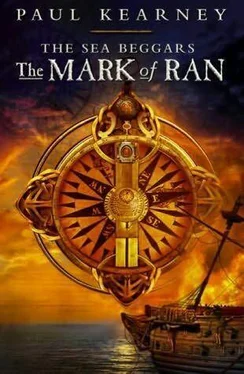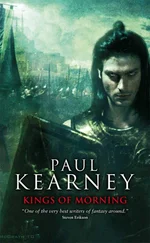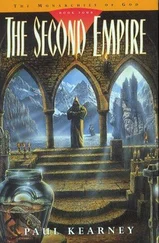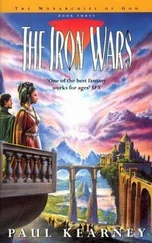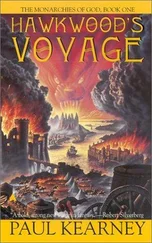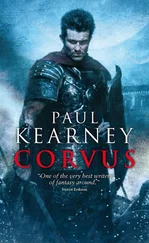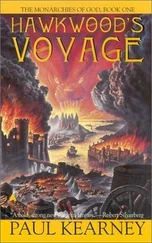Paul Kearney - The Mark of Ran
Здесь есть возможность читать онлайн «Paul Kearney - The Mark of Ran» весь текст электронной книги совершенно бесплатно (целиком полную версию без сокращений). В некоторых случаях можно слушать аудио, скачать через торрент в формате fb2 и присутствует краткое содержание. Жанр: Фэнтези, на английском языке. Описание произведения, (предисловие) а так же отзывы посетителей доступны на портале библиотеки ЛибКат.
- Название:The Mark of Ran
- Автор:
- Жанр:
- Год:неизвестен
- ISBN:нет данных
- Рейтинг книги:3 / 5. Голосов: 1
-
Избранное:Добавить в избранное
- Отзывы:
-
Ваша оценка:
- 60
- 1
- 2
- 3
- 4
- 5
The Mark of Ran: краткое содержание, описание и аннотация
Предлагаем к чтению аннотацию, описание, краткое содержание или предисловие (зависит от того, что написал сам автор книги «The Mark of Ran»). Если вы не нашли необходимую информацию о книге — напишите в комментариях, мы постараемся отыскать её.
The Mark of Ran — читать онлайн бесплатно полную книгу (весь текст) целиком
Ниже представлен текст книги, разбитый по страницам. Система сохранения места последней прочитанной страницы, позволяет с удобством читать онлайн бесплатно книгу «The Mark of Ran», без необходимости каждый раз заново искать на чём Вы остановились. Поставьте закладку, и сможете в любой момент перейти на страницу, на которой закончили чтение.
Интервал:
Закладка:
Paul Kearney
The Mark of Ran
(The Sea Beggars – 1)
One
“There was a God once, of course there was. An All-Father who created everything and each race to inhabit the earth. But He left us long ago, disgusted by the waywardness of His creation, and the wanton appetites of the creatures He had populated His world with. We are forsaken now, children abandoned by their father. And when God withdrew from the world, to punish us He took with Him all hope of life after death. So nothing but the worm awaits us all. No justice for the persecuted, no punishment for the wicked. And thus our world turns, spun on its axis by the greedy dreams of men.”
“But there are other gods, surely,” Rol said. “There is Ussa, and Ran her spouse. And Gibniu of the Anvil-”
“Lesser deities, bound to the earth even as we are, my boy. They are powerful, yes, and immortal, but they cannot create. They can only destroy, or warp what has already been made by the One God who abandoned us.”
“And the Weren, what of them?”
Rol’s grandfather paused, frowned. It was a long moment before he answered.
“Some say that the Weren are fallen angels, exiled here on earth in punishment for an ancient sin, others that they are Man before his Fall, Man as he should have been. But the Lesser Gods, in jealousy, broke them down and enfeebled them and produced the mankind we know now. In either case the peoples of the world are but shadows of angels, just as the Ur-men, the Unfinished Ones, are shattered travesties of humanity. For this much is true about Umer, the wheeling earth we inhabit: all things are in decay now that God has left us. The world spins ever more slowly on its axis and the sun cools year by year, century upon century. One day Umer will be a frozen ball of mud, its turning stilled at last, and it shall drift about an ashen sun in which all light has died.”
The boy named Rol considered this. The evening light off the Wrywind Sea set his red-gold hair alight in a momentary kinship of color. His eyes were green as amethyst, pale as the shallows of a tropical lagoon. He was nine years old, and his arms were wrapped around his filthy, scabbed knees. An urchin with the face of an archangel.
“When did God leave the world?” he asked the old man.
“Eons ago. Before even the first of the Lesser Men opened his eyes, in the time of the Old World, before the New was born.”
“How do you know all this, Grandfather?”
The old man indulged in another one of his silences. He thumbed down the glowing whitherb in his black pipe with one horny thumb, long burnt past sensibility. Behind him, in the west, the dying sun ignited a gaudy cauldron of fire on the brim of the horizon. In the shadow of the headland the waves reached languidly for the black rocks below, caressing the same stone that in winter they would pound with white fury.
“Our people have always known these things,” the old man said at last, reluctantly. He turned rheumy eyes upon the bright young face beside him, and smiled. In that instant it was possible to see that in his youth he, too, had been beautiful.
“The Dennifreians? Why do farmers and fishermen keep all this lore to themselves? Why-”
“For the last time, Rol, you and I, and Morin and Ayd who watch over you, we are not from Dennifrey. We come from-elsewhere.”
“So you say. But where, Grandfather?” The boy’s face had hardened into stubbornness as all children’s will at the wheedling of some secret knowledge.
His grandfather puffed thoughtfully on his pipe, and stared up at the first stars that had come chasing the sunset. He seemed to be looking for something in the empurpling sky, and when he found it he pointed with one brown, corded arm. “See that star there?”
“The one that flashes blue? That’s Quintillian. Bionar’s Guard they call him too. Set your course by him and you’ll come in the end to Urbonetto of the Wharves, the Free City.”
Grandfather smiled. “Well done. But he was once called something else. Or-Desyr he was to me, when I was as young as you are now. Don’t you be telling that to no one now. That’s a secret, the name of our star, for us alone to know.”
The boy nodded solemnly, deflated because the secret had been so small a thing as a name that meant nothing to him. And whom could he tell?
“You said we were not from Dennifrey,” he pointed out sulkily. “What’s a star got to do with that?”
“The star points home,” his grandfather said patiently.
“We’re from Urbonetto, then?”
“No! We’re far beyond that, beyond mighty Bionar and Perilar and even fabled Uruban of the Silk. Remember this: Or-Desyr, or the Guard as they call him, he points over the Oronthic Sea, at the edge of Tethis herself. In those great waters it is said he can be followed to a place where ones such as us may be safe, for a little while at least. But never mind that. It’s a matter for another day. Look, the night has come upon us unawares.”
It was indeed dark now, and behind them Morin and Ayd had lit the lamps so that kindly yellow light flickered out of the doorway of the cottage they all shared. They heard the click of wooden plates, Ayd’s sharp voice berating Morin for some domestic infraction. A yellow rectangle of firelight flooded out of the doorway, waxing steadily as the darkness deepened around them and the coastal kirwits began to rasp their nightsong.
“Tethis sleeps,” the old man said, staring out at the quiet sea. “See the swell? Ussa is combing her hair.”
They watched the starlight as it glittered on the successive small waves lapping the rocks.
“I will sail the sea one day,” Rol whispered fiercely. “I will visit every country and kingdom in the world. I will captain the finest ship ever built.”
“Perhaps you will,” said Rol’s grandfather softly. “It is in your blood, after all. And all things came out of the sea in the Beginning. Even the mountains once were mud in the dark of Ussa’s Womb. To the sea shall it all return before the end of days. Only when the sun grows cold will Ussa herself die, and the surface of the earth know stillness at last.”
He stood up, gripping the shoulder of the boy beside him and groaning. The bowl of his pipe glowed red and he spat fragrant smoke into the night air.
“Come, Rol. Ussa will wait for you and that ship of yours, but it’s time for supper and Ayd is not so patient. The pigs have seen too many of my meals lately.”
Dennifrey of the Nets, easternmost of the Seven Isles, and most insular of the seven. The shallow water of the Wrywind Sea lapped its dour shores, famed for fogs and the treacherous Severed Banks that never twice appeared on the same longitude. The Dennifreians were wedded in a bitch-marriage to the sea, a nation canny with small boats, near with their welcome to strangers, giving grudging obeisance to Ussa of the Swells, sometimes slaughtering a kid to her consort, vicious Ran, to placate his winter storms. It was as though they hated the element upon which their craft floated. They rode it as warily as a man might a skittish horse. But their fishing grounds were the richest in the northern world, and the Dennifreians had done well out of their hag-ridden union. They had become prosperous, and yet their wealth had not rendered them any more receptive to the matters of the world beyond their shores. Almost they gloried in their ignorance, and viewed the Fisher-Merchants who took the salted choice of their catch abroad with disdain.
A small payment for this fish-fueled prosperity of theirs-a steady trickle of lives every year lost to Ran’s Nets, the blood-price for their tenure of the sea’s riches. Perhaps it was that which made them dour, for they were a folk apt to strike hard bargains, and to resent it when in their turn they had one forced upon themselves. But one does not argue with the gods. So they cursed the sea when they were not out upon her breast, and their offerings were made with ill grace.
Читать дальшеИнтервал:
Закладка:
Похожие книги на «The Mark of Ran»
Представляем Вашему вниманию похожие книги на «The Mark of Ran» списком для выбора. Мы отобрали схожую по названию и смыслу литературу в надежде предоставить читателям больше вариантов отыскать новые, интересные, ещё непрочитанные произведения.
Обсуждение, отзывы о книге «The Mark of Ran» и просто собственные мнения читателей. Оставьте ваши комментарии, напишите, что Вы думаете о произведении, его смысле или главных героях. Укажите что конкретно понравилось, а что нет, и почему Вы так считаете.
